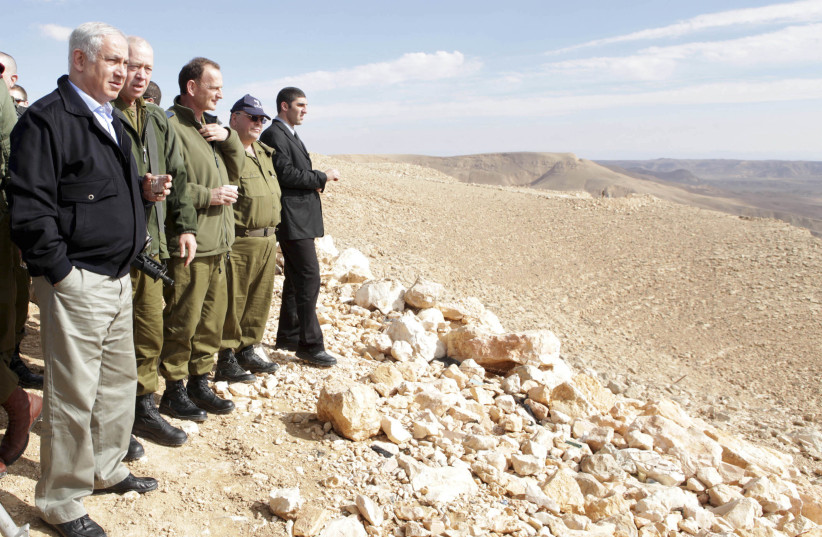December 28 marks 75 years since Israel won the battle of 'Auja and crossed the border of Egypt. 'Auja is currently Nitzana, along the border between Israel and the Sinai.
The battle of ‘Auja was a battle that was part of Operation “Horev,” an attack on the Egyptian expeditionary force in the Negev and Eastern Sinai. After 75 years, the IDF is once again battling in the Negev against a different opponent, Hamas.
Operation Horev was the last operation on the Egyptian front during the war, meant to complete Israel’s efforts of capturing the Negev and expelling the Egyptian military from Israel’s territory.
The operation's first stage was capturing 18 Egyptian positions on the Beersheva - ‘Auja road, including seven around ‘Auja. The attack was conducted by 8th Brigade forces, reinforced by troops from the Harel Brigade.
Operation Horev military strategy
Operation Horev began on December 22, with assaults at Hill 86 and Rafah. These attacks were a diversion from the IDF’s main operations in Beersheba.

The IDF attacked Egyptian units along the coast road at Hill 86 and Rafah while at the same time conducting a wide envelope from Beersheba, outflanking Egyptian forces at Bir Tamila, and attacking across the international border through ‘Auja.
This envelope would cut the coast road and create a circle that denied the Egyptian Army a key line of communication. It would allow the IDF to defeat its Egyptian forces and compel the Egyptian government to enter armistice negotiations.
On December 24, the IDF attacked south from Beersheba towards Auja, equipped with armored cars, half-trucks, and tanks. The IDF first attacked ‘Auja on December 26 and was won on December 27. On December 28, the 8th brigade took the two final positions, completing the capture of all 18 positions.
This battle triggered a complete withdrawal of Egyptian forces along the Beersheba - ‘Auja road, and many Egyptian soldiers surrendered themselves to Israeli forces. This battle was the end of the Egyptian campaign across its border and initiated the battle within Egyptian territory. After this battle, the Egyptian eastern wing completely fell apart.
After this battle, the Israeli military sent its forces into the Sinai peninsula. However, all Israeli forces eventually withdrew due to international pressure.
After the war ‘Auja and its surrounding area became a demilitarized zone. However, Israel recaptured it in 1955.
